Classic album: Fila Brazillia on Black Market Gardening
Steve Cobby remembers the rulebook-ditching album he made with Dave McSherry in 1996
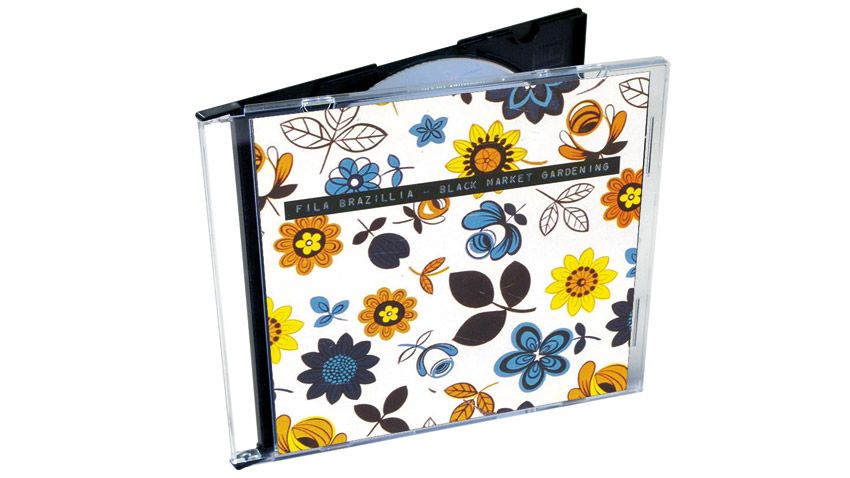
Over in Boogie Down Hull (as no one ever calls it), around the mid-90s, two men are beavering away in a townhouse-cum-studio in the city centre. Trip-hoppers sulk by on the streets below as the high street bustles with shoppers ignoring Wet Wet Wet’s Love Is All Around, radiating from in-store speakers.
Oblivious to all this - to trends, fashion, and the rules of making music - are Fila Brazillia, deep in the immersive process of making their third album (of an eventual 11), Black Market Gardening.
It’s a wonderfully dense record, full of joyous, romping beats and riffs, styles and moods. And it marked a creative high point for the duo of Steve Cobby and Dave McSherry.
Over the course of its nine tracks they royally messed with disco, tinkered with jungle rhythms, and embraced hip-hop’s gift for a loop.
“We were very much into cross-pollination,” says Cobby. “It can be a bit of a clusterfuck, but sometimes there’s that magic when you put disparate elements together.”
Cobby and McSherry shared labour on the project, each taking turns to twang guitars, bash drums and fiddle with keyboards.
“We were both adept at programming and engineering, as well,” says Cobby. “So, if he was in the chair I’d be executively producing at the back. It was just a case of passing the baton, making each other laugh.”
Get the MusicRadar Newsletter
Want all the hottest music and gear news, reviews, deals, features and more, direct to your inbox? Sign up here.
The fact that neither of them gave a monkey’s about what was cool meant that they were, and forever are, unique.
Listening back to Black Market Gardening today still feels rewarding, like it’s an album out of time. A snapshot of two nutters doing whatever they fancied, as long as it was funky.
“The nice thing people say is that our stuff dates well,” says Cobby. “That’s because we weren’t jumping on bandwagons. A lot of our peers’ music has dated, because they went for a two-dimensional genre approach, which was something we never did. Obviously it was commercial suicide [laughs].”
Well, Wet Wet Wet may have sold a billion records, Steve, but is Marti Pellow really that happy? [Answer: Yes].
Steve Cobby’s latest album, Boothferry, is out now. Here, he takes us through Black Market Gardening, track by track.
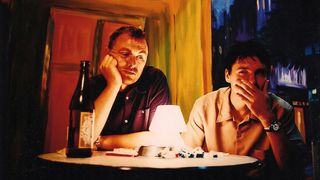
Obrigado
“I’d just come back from Portugal, and was taken with the place. Obrigado is Portuguese for ‘thank you’. We had a wall in the studio where we’d put prospective song titles, and that went straight up when I got back home.
“I’m on either the Korg DW-8000 or the Cheetah MS6, here. Mr McSherry played that acoustic guitar. The drums are the late Gary Burroughs, rest in peace.
“We did a live drum session with him at the studio he was engineering at called Animal Tracks, which was a little 16-track studio in town. Like we do when we work with most drummers, we just got him to play, maybe to just a click track, and let him express himself. Then we went back to the studio and chopped up the bits we wanted to use. He’s on a few tracks on this album.”
Snake Ranger
“Snake Rangers are a thing. It’s one of them dream jobs [laughs]. It’s got nothing to do with the track. The titles rarely have a connection to the track. We were wilfully obtuse.
“There’s a nice drum break in there. As far as vinyl digging, we’d go to secondhand shops and pull out anything we liked. We’d usually get a few pearlers. We might have stayed away from the cool, famous breaks, and ended up pulling out [pre-rock ’n’ roll honky-tonk pianist] Russ Conway. Really early on, we got fed up with the snobbery that got attached to sampling.
“It was as if you were only allowed to sample this classic cannon in the 70s, and anything outside of that and you weren’t playing the game. And, of course, the rules for us were meant to be broken.
“We’d use James Last, or any of them Reader’s Digest compilation albums. It’s just a sonic palette. And when you take it out and reframe it, it’s a montage. It becomes a different thing. We’d tax any kind of noise, not just breaks.
“There’s some live sax on here too from Bernard Moss, bless him. He was working with A Certain Ratio back in the 90s, and ended up on loads of our stuff. And he’s even on the brand new Cobby & Porky album - Cities Below Future Seas, which shows you how long we’ve stayed in touch. He’s great - A real one-take, no dubs character. “
Blubber Plinth
“This title was written up on the studio wall for the longest time. We couldn’t wait to use it [laughs]. We were just waiting for something a bit sillier and dubbier to get made.
“There’s some fuzz guitar on here, too. That’d be McSherry - he was the chief proponent of the axe. The first album, I don’t think there was a guitar on it. We were really in that clubland sonic, for one, and also we didn’t have the facilities to record. We didn’t have a multitrack back then. With this album, we were starting to stretch out a bit more and feel a bit more confident with playing more on the tracks. The guitar came to the fore much more on this album.
“There’s a little cod drum ’n’ bass on there, too, when it goes double time. We did like a tempo shift about halfway through. It’s about seven-odd minutes long, so we had to do something to keep it interesting.”
Butter My Mask
“[Laughs] What a title! Imagine trying to get that through an A&R department now. You’d be laughed off the face of the Earth!
“We always felt we could retain massive amounts of integrity, just by naming things in an off-the-cuff manner. It was so far-removed from a record label that was desperately trying to be cooler than cool. We loved the idea that we could be as contrary as we liked.
“We sampled guitar chords here and played them across the keys, then sampled some shortwave radio. It was a lovely little vintage valve radio off my granddad.
“When it comes time to sprinkle the last bits on top of a track, random ‘found sounds’ work superbly well. It also excites you, too, as you haven’t authored the thing, and you’re just letting it happen in front of you. It starts to sound like somebody else’s song. That’s why we loved putting random radio sounds and spoken word stuff in.”
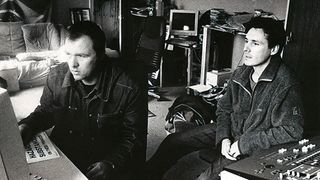
Wigs, Bifocals and Nurishment
“There’s a genuine story behind this title, but I can’t tell you [laughs]. Anyway, this track has a bit of disco in it. I remember when we would be out DJing, it was a good one to drop. It was always in our sets.
“It’s all samples. When the change comes in, it’s on that soundtrack tip. Very much some Lalo Schifrin. I was heavily into his back catalogue. We took bits from everywhere. It was like making a cake.
“In terms of sampling, hip-hop was a big teacher. But we found that they’d take big chorus riffs and repurpose them. We never wanted to do that. We didn’t want people to think they were already half familiar with the tune, because they’d heard a bit before. If you’re gonna perceive something as a fresh montage, you don’t want to be familiar with small sections. We were wary of using anything that was well known.”
Xique-Xique
“I think Xique-Xique is an area in Brazil. To me it always looked like a really good lay in Scrabble. You’d clean up!
“This is a bit of a Latin track. I was really into Juanito Pascual and people like Airto Moreira. I had a friend give me a mixtape of all that stuff and it just opened a door to a whole new world. I was channeling that on that track.
“It’s a nod to all that South American stuff. I liked some bands that blended classic South American percussion with synths and analogue washes, too.
“The album was mastered at Jah Tubby Studios. We were just getting our heads around mastering at the time, so it was great to get them involved. We always left it to Keith there. His bread and butter was reggae, so he was the don for cutting bass to vinyl. It was like you sent them some fucking ‘wishy-washy’ Polaroids over, and they sent back these beautiful 35mm plates.”
I think Xique-Xique is an area in Brazil. To me it always looked like a really good lay in Scrabble. You’d clean up!
Onc Mongaani
“When I first met McSherry we were both 17. We went to different schools, but had lots in common. For some reason, we both took to saying one of the key phrases from the Tarzan cartoon - Remember that? It was shit.
“Tarzan used to say, ‘Onc Mongaani’, to bring all the animals to heel. So when we first met, one of us came out with it. It was like, ‘Not you as well!’.
“The track itself has lots of arpeggiated ‘wibbles’ on there from the Korg DW-8000 - you can tell it’s that machine, because it’s a bit thin and tinny.
“Then Mark Young plays some tabla. He was in a group called Third Face. We’d done a session with him. He was in and out. He would have played live to the track.
“Drummers don’t play to anything, as they’re the foundation stone. But flautists, singers, and percussion… we always try and give them as much as possible to play with so they can get the feel for it.”


Future Music is the number one magazine for today's producers. Packed with technique and technology we'll help you make great new music. All-access artist interviews, in-depth gear reviews, essential production tutorials and much more. Every marvellous monthly edition features reliable reviews of the latest and greatest hardware and software technology and techniques, unparalleled advice, in-depth interviews, sensational free samples and so much more to improve the experience and outcome of your music-making.

"Reggae is more freeform than the blues. But more important, reggae is for everyone": Bob Marley and the Wailers' Catch a Fire, track-by-track

“Part of a beautiful American tradition”: A music theory expert explains the country roots of Beyoncé’s Texas Hold ‘Em, and why it also owes a debt to the blues

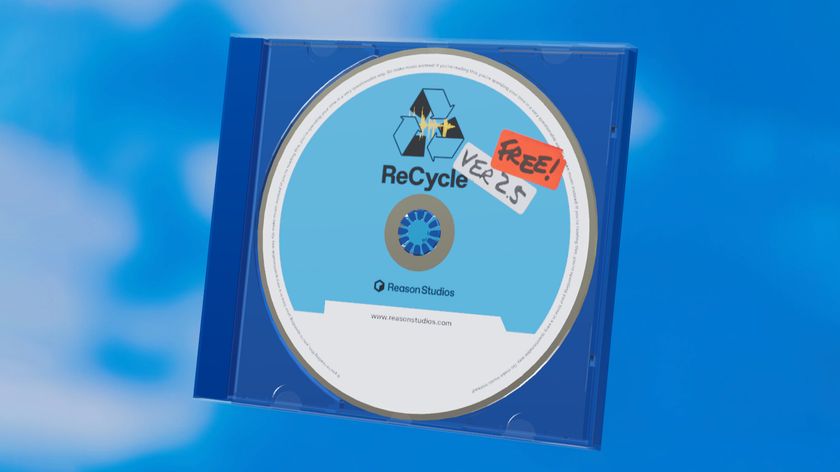
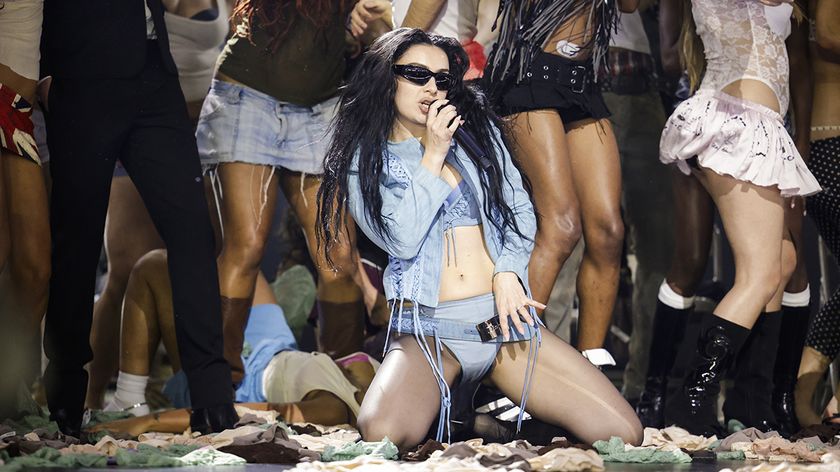
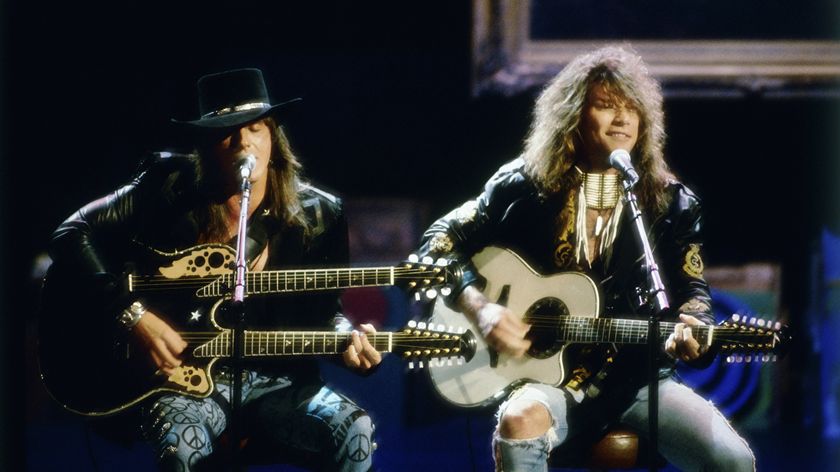
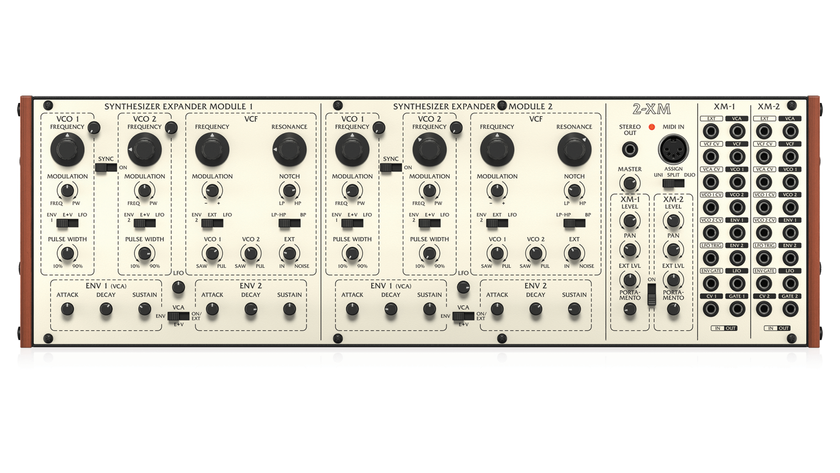
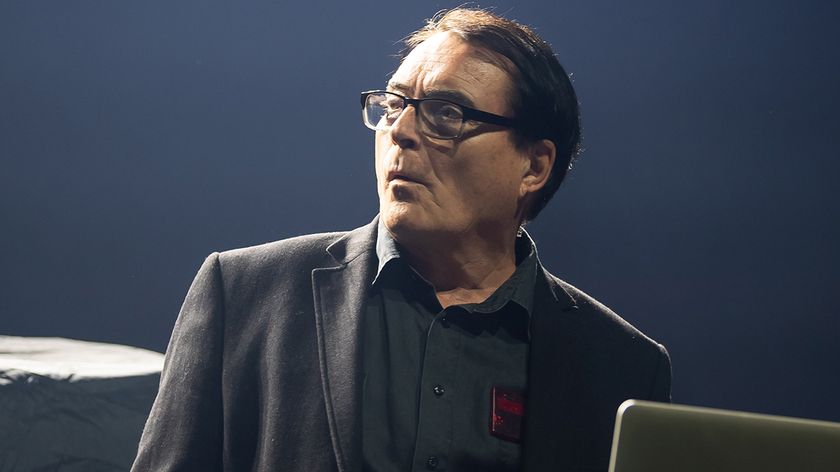

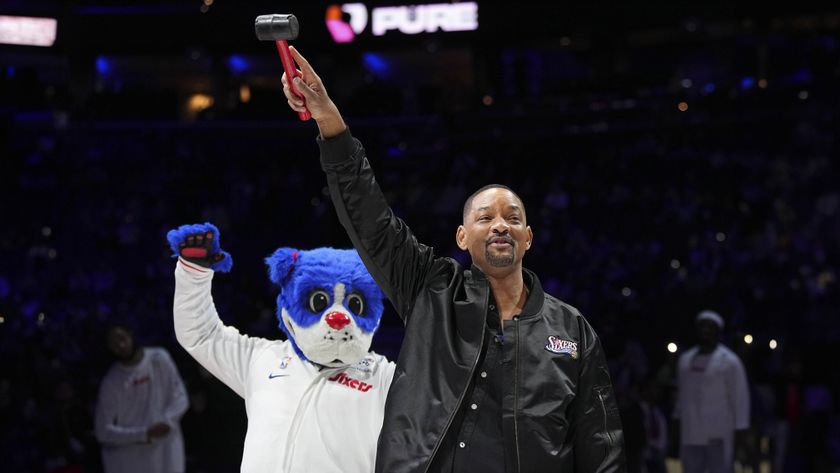


![Chris Hayes [left] wears a purple checked shirt and plays his 1957 Stratocaster in the studio; Michael J. Fox tears it up onstage as Marty McFly in the 1985 blockbuster Back To The Future.](https://cdn.mos.cms.futurecdn.net/nWZUSbFAwA6EqQdruLmXXh-840-80.jpg)